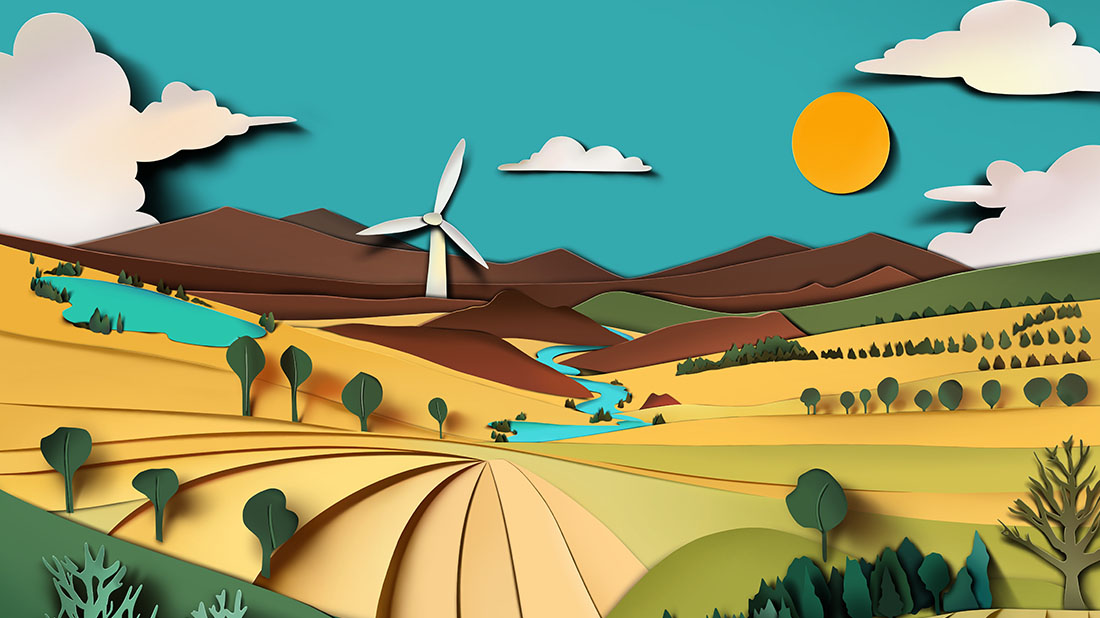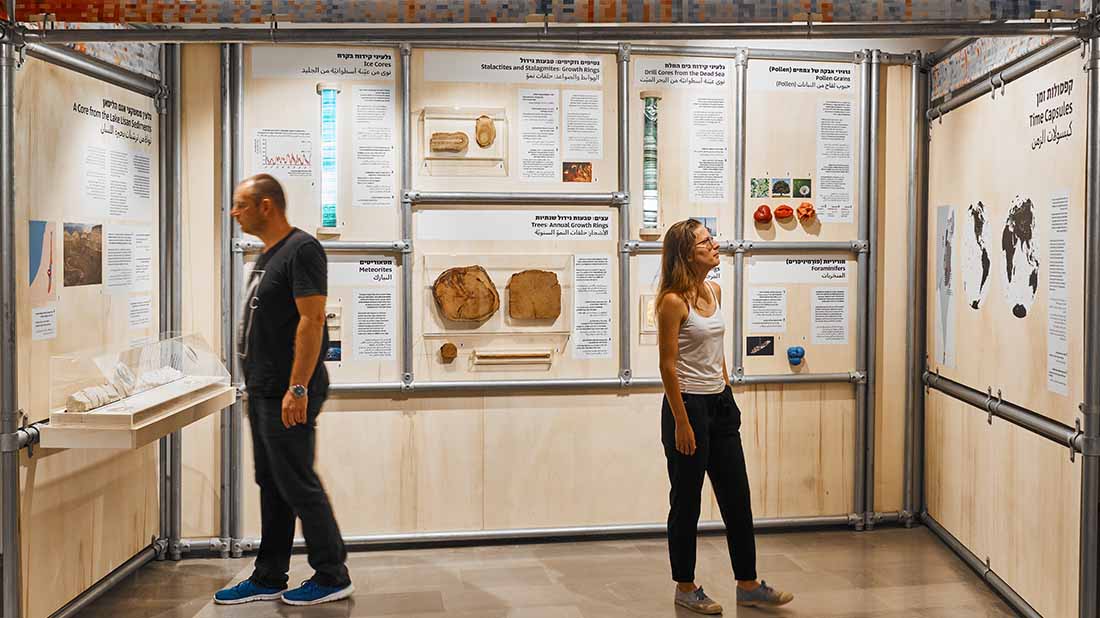The notion of sustainable nutrition has attracted increasing attention in recent years, as it addresses how to grow, produce, and consume food that is both environmentally friendly and contributes to human health. What can we do and what should we avoid? Here’s a small taste of three central issues that impact nature and our health.
As the global population grows, so does our demand for food. Nevertheless, our present food system is not sustainable. We produce and consume too much ultra-processed food, waste too much food, and eat too much meat. Sustainable nutrition, which promotes the use of agricultural methods that are beneficial to ecosystems, not only benefits human health, but also ensures that people will have access to healthy, nutritional food in the coming years.
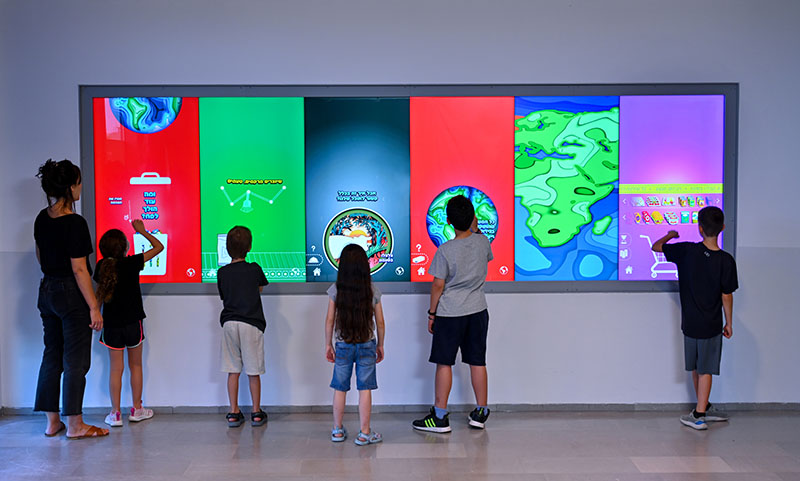
The Planet Is on Your Plate—a new exhibit at the Steinhardt Museum
From the Field to Your Plate
One of the central aspects of sustainable nutrition is reducing the consumption of ultra-processed food. Ultra-processed food is food that has undergone several processing stages, including industrial processes, and contains additives that are not found in the home kitchen, such as preservatives, food coloring and flavors and sweeteners. Examples of ultra-processed foods are soft drinks, candy, snacks, breakfast cereals and fast food. Usually, these foods are high in calories, sugar, and unhealthy fats, and lack essential nutritional components. Many studies have linked the consumption of ultra-processed food to unhealthy situations, such as obesity, type 2 diabetes and heart disease.
As well as harming our health, ultra-processed food has a significant environmental impact. Ingredients in these foods, such as palm oil, are grown across extensive farmlands, often as monocultures over large areas. This type of agriculture impacts biodiversity, and even takes over land that could have been used to grow more nutritional crops such as legumes. The ingredients in ultra-processed food demand large amounts of energy and resources, thus they contribute to the emission of greenhouse gases, exacerbate climate change, and even create other environmental problems like pollution.
To reduce the consumption of ultra-processed food, we can choose to consume whole foods with minimal processing, in other words, foods that are as close as possible to their natural state, such as fruit, vegetables, whole grains and legumes. These foods are not only healthier, they also demand less resources for their production and are therefore more environmentally friendly. Maintaining a diet rich in these types of foods, which are the basis of healthy nutrition, can also contribute to improving general health and reduce the risk of chronic disease.
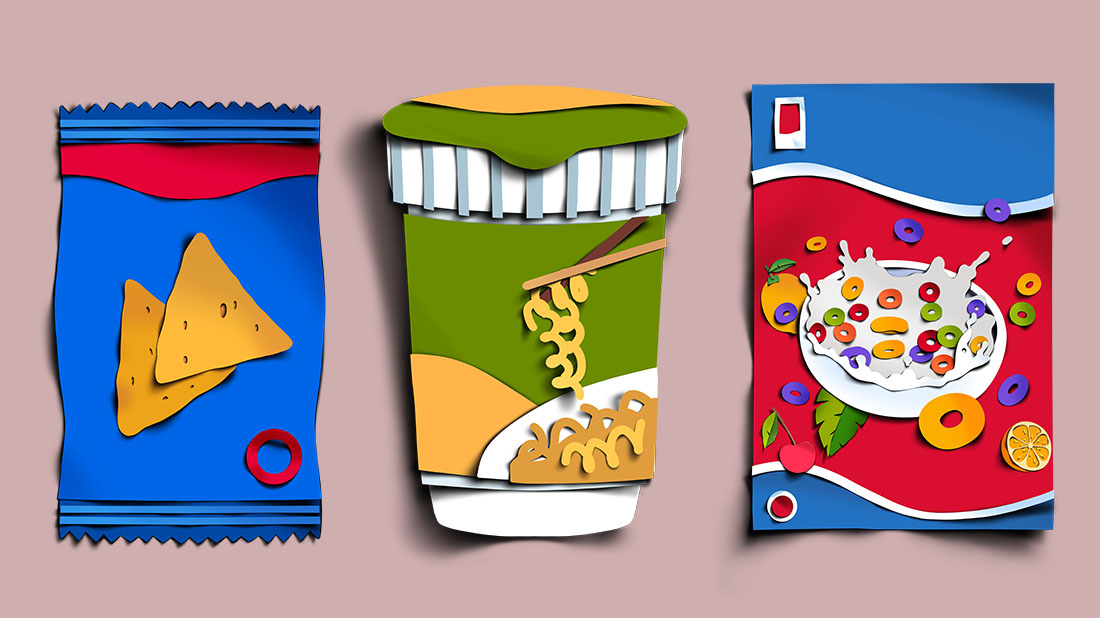
Ready to eat and full of unfamiliar ingredients? This is ultra-processed food, which you should omit from your diet
Remember These Words—Reduce Food Waste
About a third of all the food produced in the world is discarded, with significant environmental and economic consequences. When food is wasted, all the resources invested in its production, such as water, energy, and soil, are also wasted. Discarded food impacts the environment through both its production process and its contribution to the amount of waste in the world. And this is without mentioning the money invested in it which also gets wasted. What can we do? It’s simple: reduce food waste. How do we do this?
To reduce food waste we can plan our meals, and go to the supermarket with a list and buy only what we really need. Furthermore, correct storage of food can allow us to use it for a longer period for time. Using leftovers in creative ways can also facilitate food waste reduction. And any food that still needs to be discarded should at least be returned to nature as compost. By reducing food waste we can save money and resources and help protect the environment.
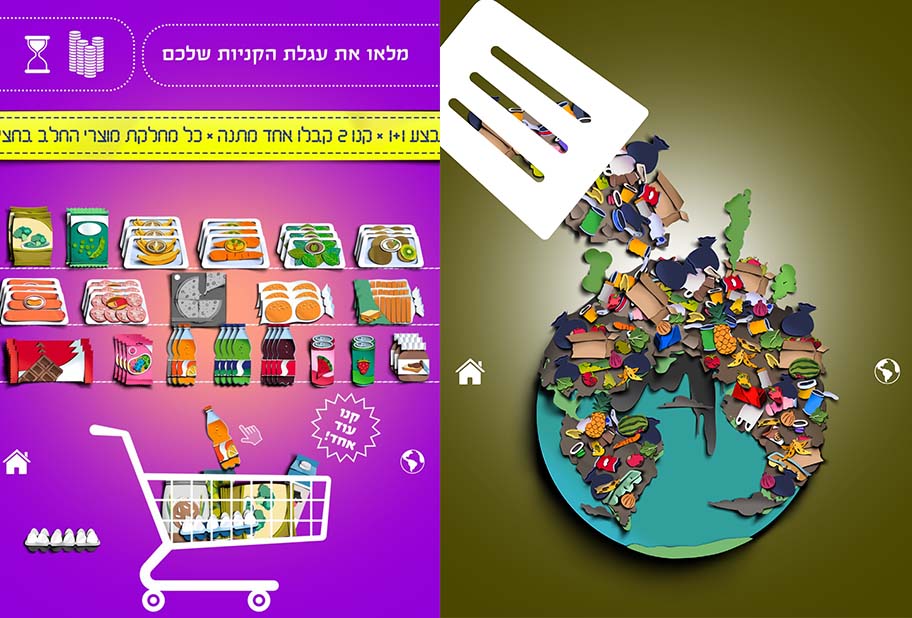
Tempted by promotions? Reduce food waste using a shopping list prepared in advance
The Greener the better
About 20% of greenhouse gas emissions come from the animal food industry. Meat production demands large amounts of resources, including water, soil and food, not only contributing significantly to greenhouse gas emissions, but also leading to other environmental problems, such as rainforest clearing, negative impacts on biodiversity, acceleration of desertification processes, and water pollution. Moreover, research studies have shown that consuming large amounts of meat is linked to health problems such as heart disease and certain types of cancer.
To reduce our meat consumption we can choose healthy foods that are a source of plant-based protein, such as beans, lentils, nuts, and seeds. These foods are not only healthier for humans; the environmental impact of these crops is much lower than that of meat production. About 77% of farmlands around the world are used to rear cattle and grow its food! Think how many things could be done with this land if its land use was changed. The Mediterranean diet, for example, is a healthy diet for both humans and the environment since it is based mainly on healthy, whole, plant-based foods, rather than meat. Today, the Mediterranean diet is a recognized solution for sustainable nutrition. Furthermore, choosing healthy plant-based food over meat can also help to reduce food waste, as plant-based food usually has a longer shelf life and lower chance of going bad.
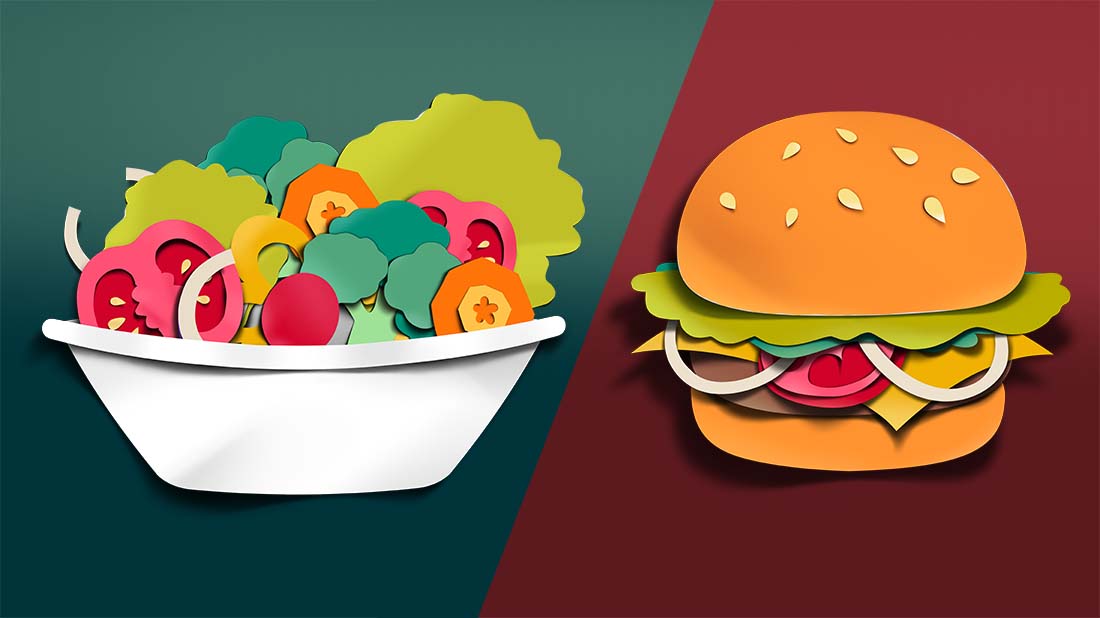
Meat lovers? You don’t have to abstain from animal-based food; reduction is the name of the game
In Other Words, the Planet is on Your Plate
You don’t have to compromise; healthy eating habits are good for both us and the environment. Through small changes in our eating habits and nutrition we’ll be able to help promote a sustainable food system, improve our health, and protect the environment for future generations. In this case, our impact is rapid and clear. If we all reduce consumption of meat and processed foods, focus on eating fish, vegetables and fresh fruit, and buy according to the amounts we consume—we’ll contribute to creating a healthy future from tomorrow.


